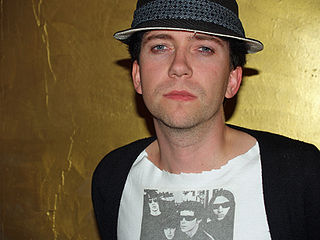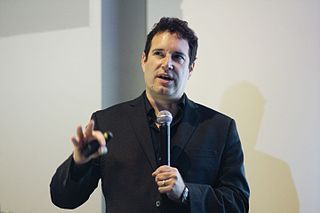A Quote by Tyler Cowen
In chess, computers show that what we call 'strategy' is reducible to tactics, ultimately. It only looks creative to us. They are still just glorified cash registers. This should make us feel uncomfortable, whether or not we think computers will ever be good composers of music or artistic painters.
Related Quotes
Run for your lives-the computers are invading. Awesomely powerful computers tackling ever more important tasks with awkward, old-fashioned interfaces. As these machines leak into every corner of our lives, they will annoy us, infuriate us, and even kill a few of us. In turn, we will be tempted to kill our computers, but we won't dare because we are already utterly, irreversibly dependent on these hopeful monsters that make modern life possible.
Chess is a unique battlefield for human minds and computers - human intuition, our creativity, fantasy, our logic, versus the brute force of calculation and a very small portion of accumulated knowledge infused by other human beings. So in chess we can compare these two incompatible things and probably make projections into our future. Is there danger that the human mind will be overshadowed by the power of computers, or we can still survive?
By the time we get to the 2040s, we'll be able to multiply human intelligence a billionfold. That will be a profound change that's singular in nature. Computers are going to keep getting smaller and smaller. Ultimately, they will go inside our bodies and brains and make us healthier, make us smarter.
In our age of individualism, we see computers as ways through which we can express our individuality. But the truth is that the computers are really good at spotting the very opposite. The computers can see how similar we are, and they then have the ability to agglomerate us together into groups that have the same behaviours.
Everything is being run by computers. Everything is reliant on these computers working. We have become very reliant on Internet, on basic things like electricity, obviously, on computers working. And this really is something which creates completely new problems for us. We must have some way of continuing to work even if computers fail.
I don't really care about labels that much. I wouldn't really call our music retro. There are influences of things from the past, which there is in everything. I think we're quite a modern band, actually. We don't record with old equipment. We use computers and programmed drums. We don't use any guitar amplifiers. We're very much a modern band in the sense that we love computers and what they can do to music. I guess we're just good at a different sound.
At the age of 5, when I was in kindergarten, I often used to pass by the computer labs and see students doing work on computers. I realized that calculation, which would take us a long time to do, can be done in less than a second with the help of computers. So that is how my interest in computers began.
Computers get better, faster than anything else ever. A child's PlayStation today is more powerful than a military supercomputer from 1996. But our brains are wired for a linear world. As a result, exponential trends take us by surprise. I used to teach my students that there are some things, you know, computers just aren't good at like driving a car through traffic.




































